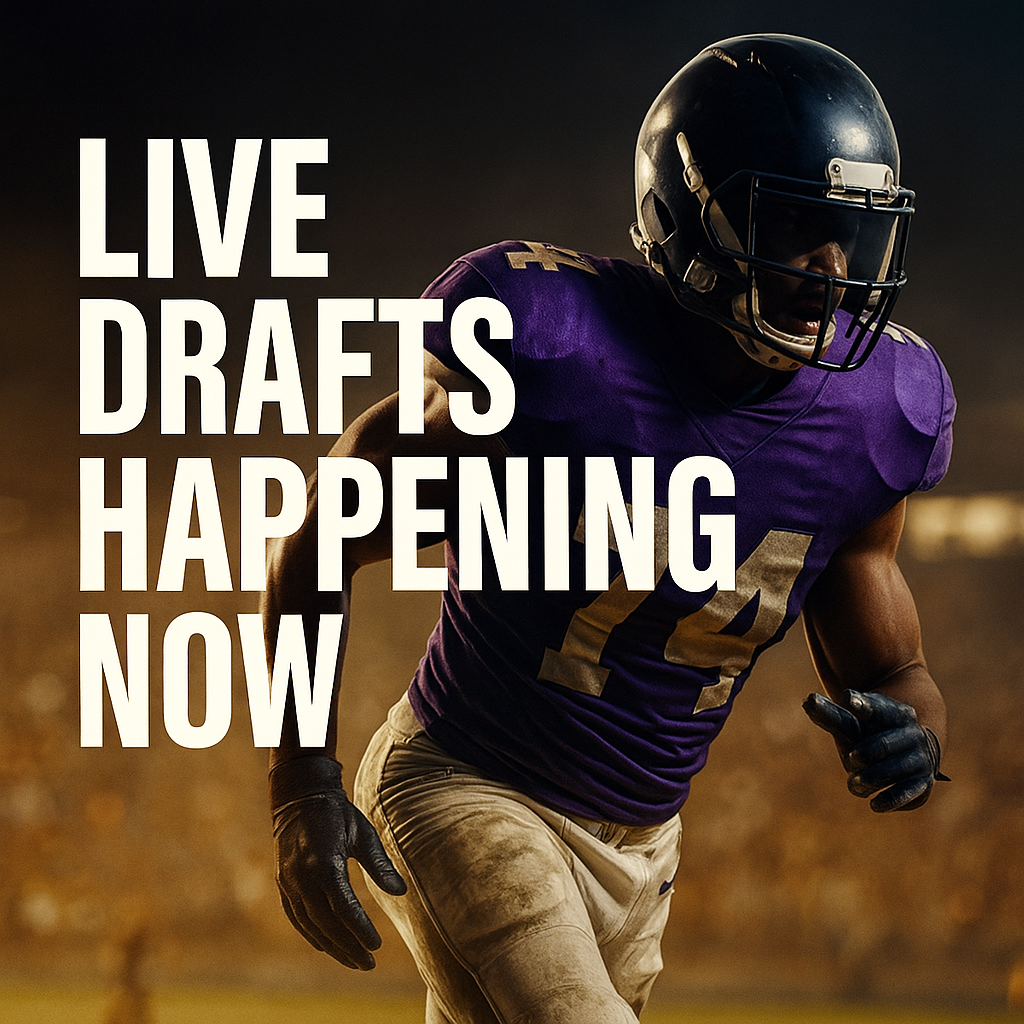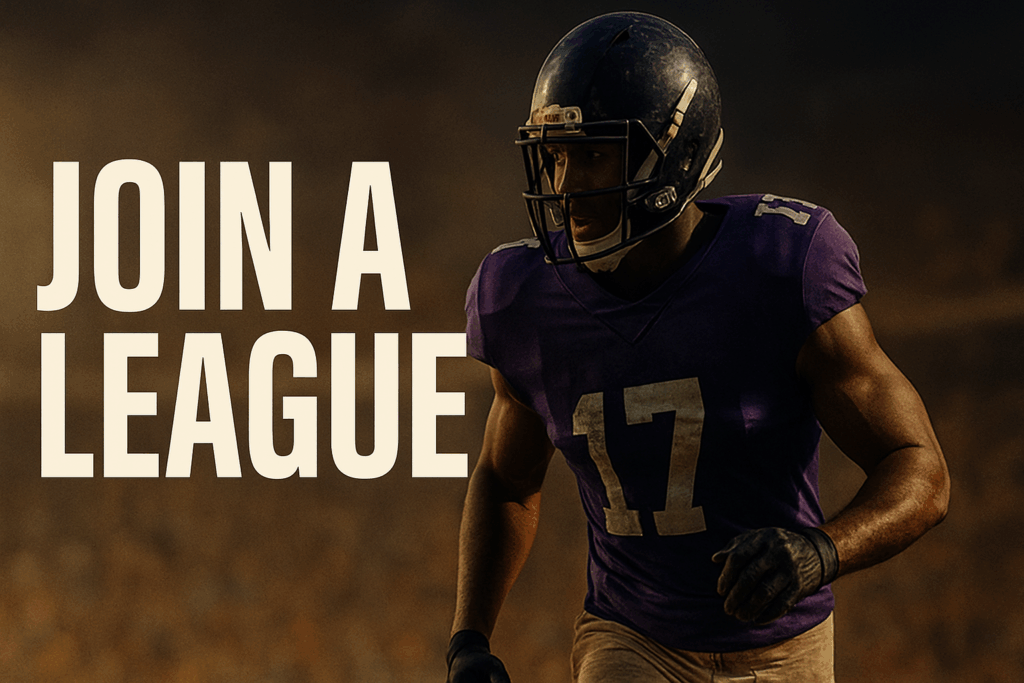There are no salary cap dynasties.
In a Salary Cap league, a good team only lasts a couple more years. Salary escalation guarantees that. Per DataForce rules, a player’s salary increases $5 plus 10% each year.
A $10 player becomes $17 the next year, escalates to $24 the following year, and skips to $32 the following year. If he hasn’t reached Superstar status by then, he’s gone. Off the roster and onto the auction block.
That makes strategy in Salary Cap leagues a short-term proposition. And that makes it possible to pick up a salary cap team and win your league with it in the first year.
Here are two tips to find the right team.
Buying Tip #1: Buy off the Marketplace
The first rule in salary cap leagues—as much as it pains me to admit this—is never buy into a salary cap league from the lobby. Buy your team off the Orphan Marketplace.
Because good teams only stay good for a couple years, there’s typically a lot of turnover in salary cap leagues. Owners use up their talent, don’t want to pay the escalated salaries for their stars, and dump the teams, figuring they’ll get out while the gettin’ is good. Well, there’s something to be said for that, but the stayin’ is good too! There is no such thing as a bad salary cap team heading into the annual auction.
There simply isn’t any reason to pay the deposit that’s required to buy into a brand new league. You’ll get just about as good a team buying “used” at half price. My advice is simple: Wait until the salary cap teams get marked down to $1, and then just pick up any team you wish. Eeny-meeny-miney-mo. You’re going to drop all, or nearly all, of the players on your roster anyway, and redraft a brand new team.
I promise you’ll build a team “just about as good” as a start-up league. This strategy of buying used and dropping all the players works because:
- Most people only keep at most 4-5 players on their team, so at least 80% of the draftable players will be available during your auction for you to bid on, and
- The subtleties of keeper selection in salary cap leagues are often missed by your competition. That’s because, there are no subtleties. You just keep the players who are worth their salary, and drop all the rest. But your competition is likely to be influenced by FOMO (fear of missing out), and cautiously keeping players that aren’t worth their value. They’re afraid of not being able to find quality replacements during the auction, so they spend more of their money than they have to.
But the talent will be there in the auction. Trust the process. Drop everybody whose even a little overpriced, bid reasonably on the rebuild, and you’ll wind up with a competitive team right off the bat.
Buying Tip #2: One or two bargain players is enough
Not into bargain-basement teams? If you don’t want to buy a $1 reject off the marketplace after the good teams have been picked over, then here’s how to pick a team to give you an even greater advantage.
Find a good source of auction values (The Wonk works good) and then simply evaluate each marketplace team on one simple criteria: which players are underpriced, and by how much? If you can locate 2 or 3 players who are underpriced by more than a couple bucks each, you’re in business. Those 2 or 3 become your keepers.
Find a way to save $10 off auction prices this way? It’ll be a competitive team! Save $20? Dang, man, what are you waiting for? Buy it now!
The truth is, it often takes just one player to save enough auction money. So, here’s the best buying tip I can give you: Think of a player whose value increased dramatically since last summer, and search the marketplace for salary cap teams with that player. Any team with Brock Bowers is probably a steal. Likewise, any team with Bucky Irving. One of these guys is probably already priced $20 below value, and dropping everybody else on your team gives you a significant advantage already in the auction! (At the time of this writing, all the “Bowers” salary cap teams are gone from the marketplace, and one “Irving” team remains.)
Can you think of other players that meet this criteria? That “Find with” search tool on the Marketplace will serve you well!
Now that you’ve picked up an off-the-shelf team on the cheap, let’s talk about strategy and how to win in year one with your bargain team. Here are two more tips to get you through the season.
Playing Tip #1: Keep some rotating cap space
During the auction, you’ll want to build your starting lineup with solid, risk-free contributors, but without overpaying for them. That’s because you’ll be stuck with their salary all year, and it can be a heavy weight hanging around your neck if you overpay. However, DON’T be afraid to overpay just a little for sleepers and anybody with a high ceiling. If you would pay $2 or $3 in a regular league for a sleeper or handcuff, be willing to pay $4 or $5 for the same player in a salary cap league.
Why? Because if you do any player rotating at all through the waiver wire during the season, you’re going to want cap space available. And assuming you spend all of your $200 budget during the auction (why, pray tell, wouldn’t you?) you’ll wind up dropping the players who don’t work out. That’ll be the $4 and $5 players you took a chance on, who now give you $4 or $5 space under the cap to spend on waivers.
So when I say “keep some cap space,” I’m not advising you to bid cheaply or hold back money. I’m telling you to not be afraid to take chances on players with a high ceiling.
Which, of course, is the entire point of a salary cap league anyway, right? You want to find that next Bowers or Irving, and hoard him at a low salary for the next three years! You can’t find him without taking a few chances, and if the chances don’t work out, don’t get attached. You just drop him and invest in the next sleeper.
Playing Tip #2: Take a chance with drops
Here’s a trick that seems incredibly obvious in retrospect, but which rarely occurs to people. The old, “drop-him-then-buy-him-back-cheap” strategy.
Sometimes you find yourself floundering, stuck with too many players you consider undroppable, and it’s leaving you just short of a winning lineup but inflexible enough to work the waiver wire and fix that lineup.
When this happens, you can probably locate one or two $20-$25 players on your roster who turn out to be worth about $12 or $13. Can’t drop them, because they’re valuable contributors to your team, but can’t afford them either, right? Luckily, there’s a solution.
Take a chance. When your $25 player’s bye week arrives, dump him. Really. We’re talking somebody along the lines of Devonta Smith. Solid player, can’t leave him out of your lineup, but not worth quite what you hoped he would be worth. Get your $25 back.
Spend that $25 on overpriced fill-ins this week, maybe a defense with a great matchup plus a couple quality handcuffs just in case the right injury comes along to make a handcuff valuable. Go ahead, spend the whole $25, you’re just going to drop these fill-ins anyway, unless one of your hail-Mary handcuffs turn to gold.
Then, in the next week, get back your $25, and put a more reasonable price on Devonta Smith. Maybe you can get him for $15, freeing up $10 in cap space for the rest of the year.
Risky? Sure it is, but doing something is better than sitting on a losing team. Always check your opponents’ rosters first to see how much cap space they have, because ideally, you’ll want to time your risky drop when nobody has money to bid on him.
And there you have it. My two simple tips for landing a cheap team, and then two simple tips for winning with it. Good luck this year!
? Leagues Forming Now at DataForce Fantasy Football! ?
Ready to draft? We offer the widest variety with the best prize payouts anywhere!
Come check out what we have available in our lobby and Orphan Marketplace.
Join the fun and draft your winning team today at DataForceFF.com!

Lee Harmon
Commissioner


